
Santa Rita: Guam’s Coastal Gem
Santa Rita, a charming village in Guam, is a destination where history, culture, and natural beauty blend seamlessly. Nestled on the island’s western coast, it offers visitors a picturesque escape with its stunning sea views and lush landscapes. This small village is steeped in history, being one of the oldest settlements on the island, with roots tracing back to Spanish colonial times. The remnants of Fort Santa Agueda stand as a testament to this rich past, providing a window into the island’s storied heritage. The village is also a gateway to some of Guam’s most breathtaking natural attractions. The nearby Agat Bay is a haven for snorkeling and diving enthusiasts, with its crystal-clear waters and vibrant marine life. Hiking trails in the area lead to hidden waterfalls and offer panoramic views of the surrounding countryside. For those seeking relaxation, the serene beaches of Santa Rita provide the perfect backdrop for a day of sunbathing and swimming. Cultural experiences abound in Santa Rita, with traditional events and festivals that offer a glimpse into the local Chamorro culture. Visitors can indulge in authentic Chamorro cuisine, with its unique blend of flavors influenced by the island’s diverse history. The warm hospitality of the locals ensures that every visitor feels welcomed and leaves with unforgettable memories.
Local tips in Santa Rita
- Visit Fort Santa Agueda for a historical perspective and stunning views of the coastline.
- Bring snorkeling gear to explore the vibrant marine life in Agat Bay.
- Attend local festivals to experience authentic Chamorro culture and cuisine.
- Wear comfortable hiking shoes for exploring the trails leading to waterfalls and scenic viewpoints.
- Make sure to try local dishes like kelaguen and red rice for an authentic taste of Chamorro cuisine.
Santa Rita: Guam’s Coastal Gem
Santa Rita, a charming village in Guam, is a destination where history, culture, and natural beauty blend seamlessly. Nestled on the island’s western coast, it offers visitors a picturesque escape with its stunning sea views and lush landscapes. This small village is steeped in history, being one of the oldest settlements on the island, with roots tracing back to Spanish colonial times. The remnants of Fort Santa Agueda stand as a testament to this rich past, providing a window into the island’s storied heritage. The village is also a gateway to some of Guam’s most breathtaking natural attractions. The nearby Agat Bay is a haven for snorkeling and diving enthusiasts, with its crystal-clear waters and vibrant marine life. Hiking trails in the area lead to hidden waterfalls and offer panoramic views of the surrounding countryside. For those seeking relaxation, the serene beaches of Santa Rita provide the perfect backdrop for a day of sunbathing and swimming. Cultural experiences abound in Santa Rita, with traditional events and festivals that offer a glimpse into the local Chamorro culture. Visitors can indulge in authentic Chamorro cuisine, with its unique blend of flavors influenced by the island’s diverse history. The warm hospitality of the locals ensures that every visitor feels welcomed and leaves with unforgettable memories.
When is the best time to go to Santa Rita?
Iconic landmarks you can’t miss
Two Lover’s Point
Discover Guam's legendary Two Lover's Point: Breathtaking views, a tragic love story, and a symbol of eternal commitment overlooking the Philippine Sea.
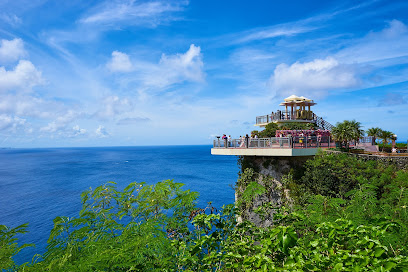
Inarajan Natural Pool
Discover the beauty and tranquility of Guam's Inarajan Natural Pool, a perfect blend of nature, culture, and relaxation.
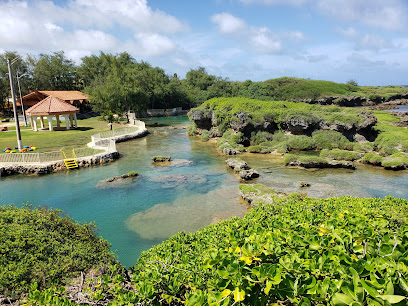
Fish Eye Marine Park - Visitor Center
Explore Guam's underwater wonders at Fish Eye Marine Park: Micronesia's only underwater observatory in the vibrant Piti Bay Marine Preserve.
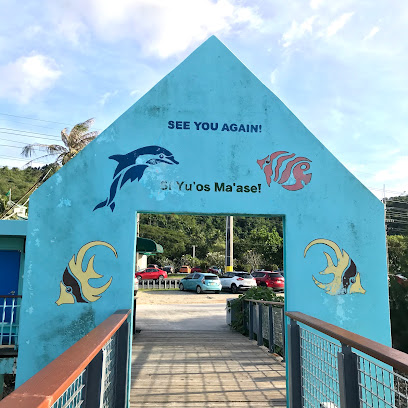
Ypao Beach
Discover Ypao Beach in Guam: a family-friendly tropical escape with clear waters, cultural events, and historical significance in Tumon.
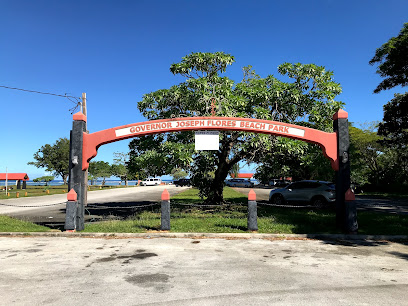
Plaza de España
Explore Guam's colonial past at Plaza de España, a historic plaza with Spanish ruins and lush gardens in the heart of Hagåtña.
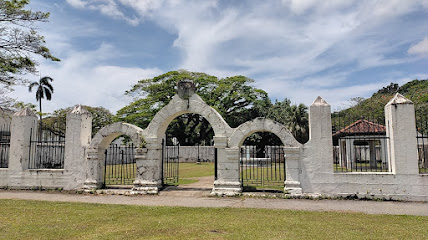
Fort Nuestra Señora de la Soledad
Explore Guam's Spanish colonial past at Fort Soledad, offering stunning views and a glimpse into the island's rich maritime history.
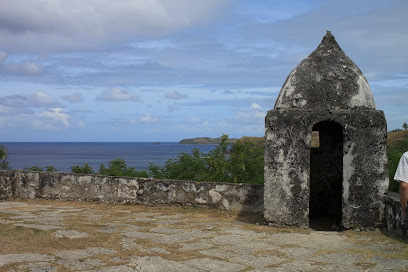
Cetti Bay Overlook
Experience Guam's natural beauty at Cetti Bay Overlook: panoramic views, volcanic landscapes, and a glimpse into the island's rich history.
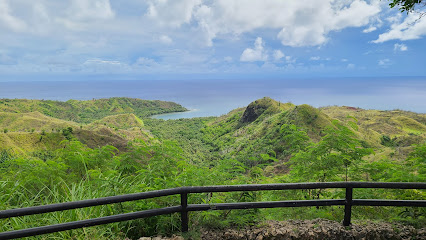
Ritidian Point
Explore Guam's northernmost paradise: pristine beaches, lush jungle, and ancient Chamorro history await at Ritidian Point.
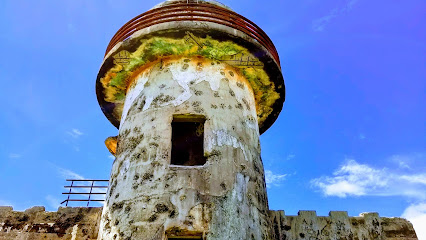
Talo'fo'fo' Falls
Experience the breathtaking beauty of Talo'fo'fo' Falls, a serene escape in Guam's lush landscapes, perfect for nature lovers and adventure seekers.
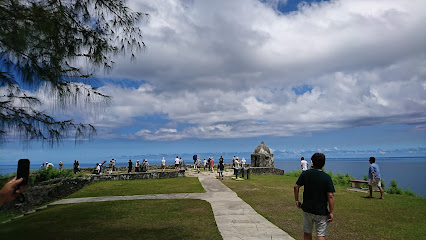
T. Stell Newman Visitor Center
Explore Guam's breathtaking landscapes and rich cultural heritage at the T. Stell Newman Visitor Center, your essential guide to the island's wonders.
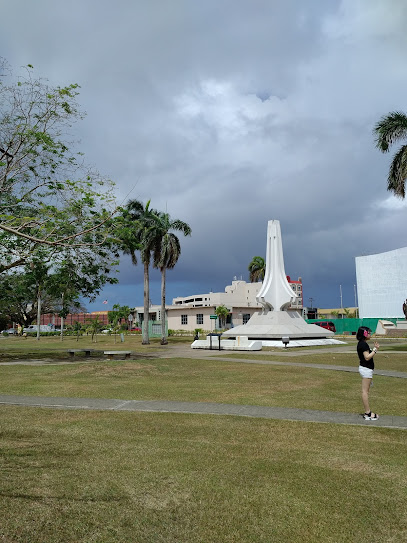
Fort Santa Agueda
Explore Guam's history at Fort Santa Agueda, the last Spanish fort in Hagåtña, offering stunning panoramic views of the capital and coastline.
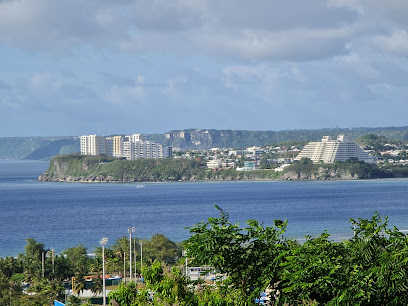
Fish Eye Underwater Observatory
Explore Guam's underwater paradise at Fish Eye: Micronesia's only underwater observatory, offering stunning views of vibrant marine life.
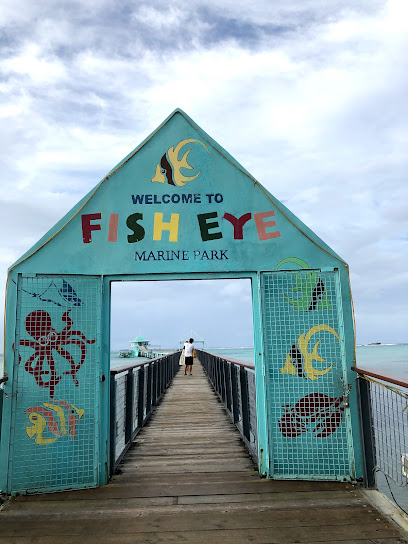
Asan Bay Overlook
Reflect on Guam's WWII history at this scenic overlook with stunning views, memorials, and bronze sculptures honoring those who sacrificed.
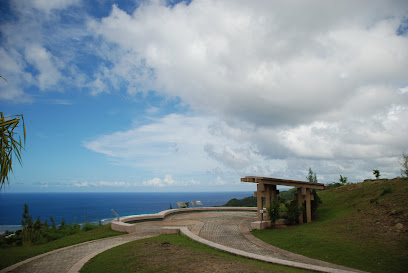
Merizo Pier
Experience Guam's southern charm at Merizo Pier: scenic views, Cocos Island access, and a taste of island life.
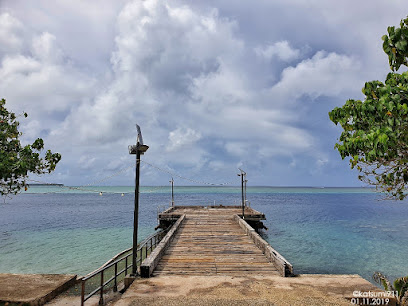
War in the Pacific National Historical Park
Explore historic battlefields and memorials honoring the Pacific Theater of WWII within Guam's War in the Pacific National Historical Park.
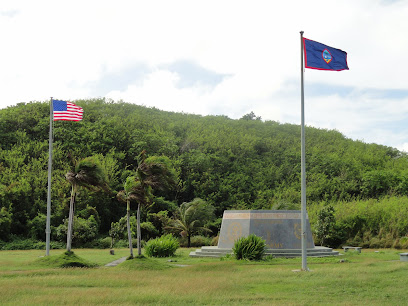
Unmissable attractions to see
Fort Nuestra Señora de la Soledad
Explore Guam's Spanish past at Fort Soledad: panoramic views, rich history, and a glimpse into the island's strategic importance.
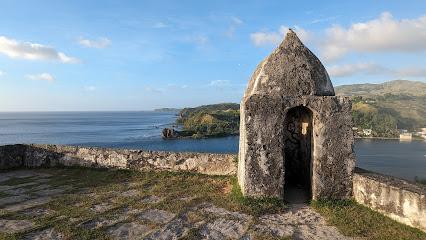
Karera at SandCastle
Experience Guam's premier entertainment at SandCastle, home to the spectacular 'Karera' show, a fusion of island culture and world-class performance.

Taotao Tasi Guam
Experience Guam's vibrant Chamorro culture with captivating performances, delicious cuisine, and stunning sunsets at Taotao Tasi on Gun Beach.
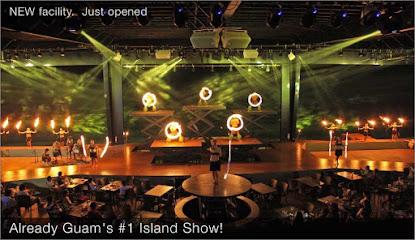
Talo'fo'fo' Falls
Discover Guam's natural beauty and history at Talo'fo'fo' Falls, a serene escape with cascading waterfalls and cultural exhibits.
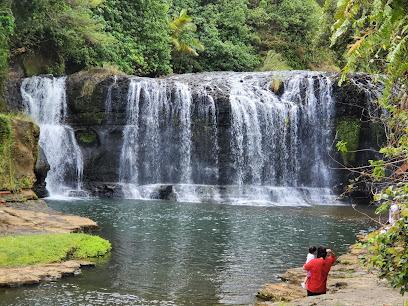
Chamorro Night Market
Experience Guam's vibrant culture, cuisine, and crafts at the Chamorro Night Market, a weekly celebration in the heart of Hagåtña.
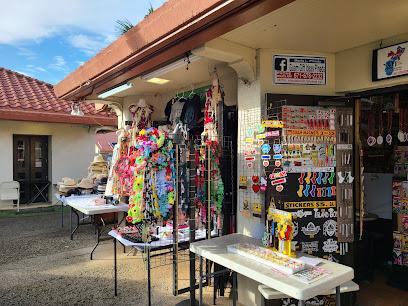
Onward Mangilao Golf Club
Experience world-class golfing with breathtaking ocean views at Onward Mangilao Golf Club, Guam's premier golfing destination.
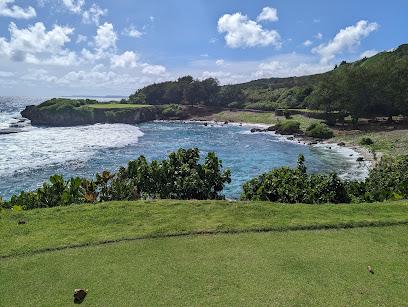
Country Club of the Pacific
Experience world-class golfing at the Country Club of the Pacific in Guam, with breathtaking ocean views and meticulously maintained fairways.

Senator Angel Leon Guerrero Santos Latte Stone Memorial Park
Explore Guam's ancient Chamorro heritage at this peaceful park, featuring iconic latte stones and honoring Senator Angel Leon Guerrero Santos.
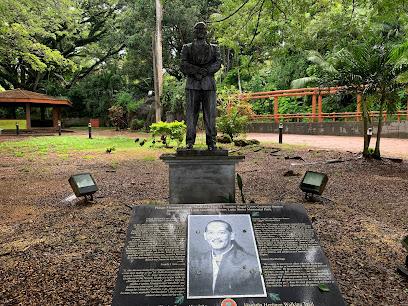
Guam International Raceway
Experience the adrenaline-pumping action of motorsports at Guam International Raceway, featuring diverse racing events and off-road adventures for all ages.
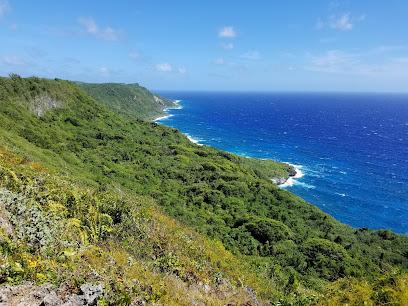
Latte of Freedom
Discover Guam's Chamorro heritage at the Latte of Freedom, a symbol of strength and cultural pride with panoramic island views.
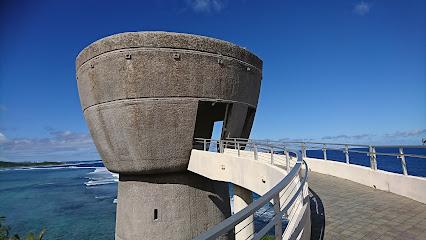
Mount Lamlam Summit
Hike Guam's highest peak, Mount Lamlam, for stunning views and a unique claim to fame as the 'world's tallest mountain' from its base.
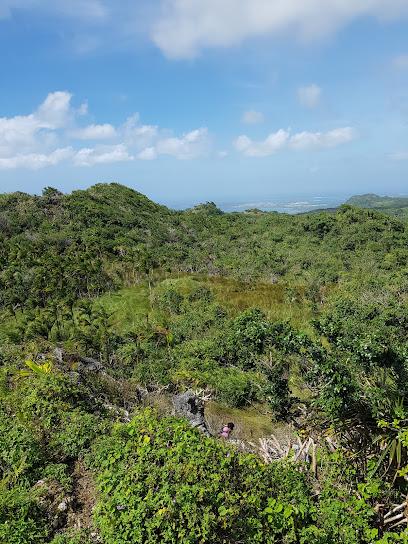
Guam Ocean Adventures
Explore Guam's underwater beauty with guided dives, snorkeling, and paddleboarding in the pristine waters of Apra Harbor. Unforgettable ocean adventures await!
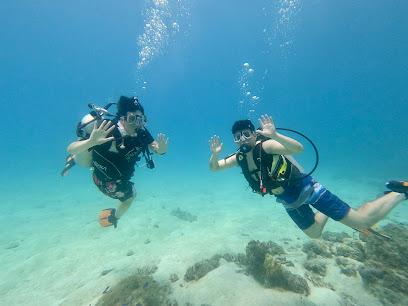
Our Lady of Purification Catholic Church
Discover a spiritual haven in Guam at Our Lady of Purification Catholic Church, where faith, culture, and community converge in a serene setting.
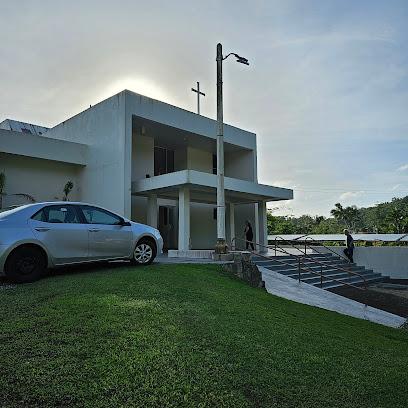
Upper Sigua Falls
Discover the natural beauty of Upper Sigua Falls in Yona, Guam – a captivating escape into lush landscapes and refreshing waterfalls.
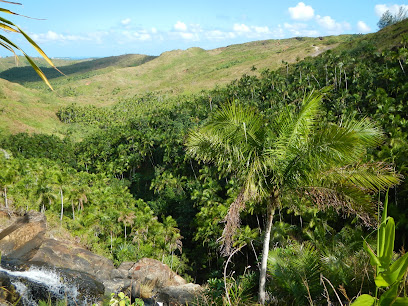
Guam Sunset Cruise Dinner & Dolphin Watching
Experience Guam's breathtaking sunsets, dine on a BBQ buffet, and watch playful dolphins on this unforgettable ocean cruise.
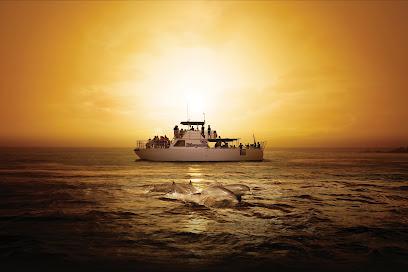
Essential places to dine
King's Restaurant
Discover delicious American cuisine at King's Restaurant in Guam - perfect for breakfast lovers and comfort food enthusiasts.
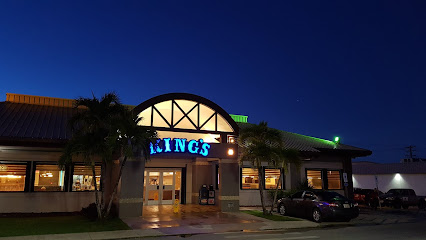
Pika's Cafe
Experience the vibrant flavors of Guam at Pika's Cafe—your go-to spot for delicious breakfasts and lunches in Upper Tumon.
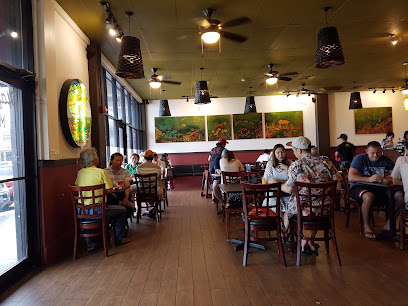
Crust Pizzeria Napoletana
Experience authentic Neapolitan pizza at Crust Pizzeria Napoletana in Hagåtña – where every slice tells a story of Italy's rich culinary heritage.
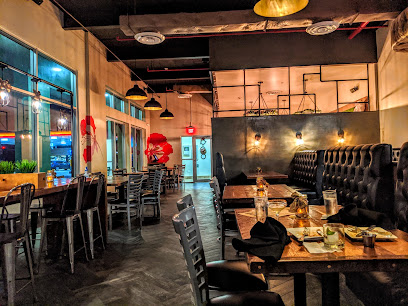
Marina Grill
Experience exquisite dining with stunning marina views at Marina Grill in Hågat, Guam - where every meal is a celebration of flavor.
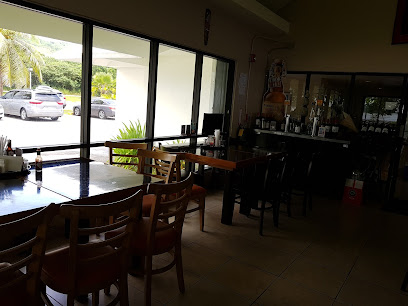
TuRe’ Café
Experience the taste of Guam at TuRe’ Café, where local flavors meet international flair in a cozy setting.
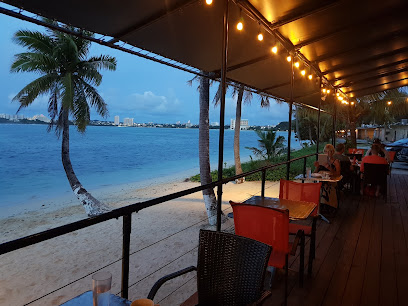
Capricciosa Restaurant
Experience the taste of Italy at Capricciosa Restaurant in Hagåtña, where authentic flavors meet warm hospitality.
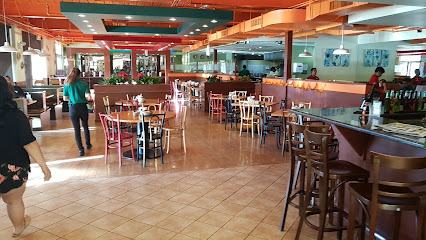
Three Squares Restaurant
Discover Guam's culinary delights at Three Squares Restaurant - where local flavors meet international tastes in a welcoming setting.
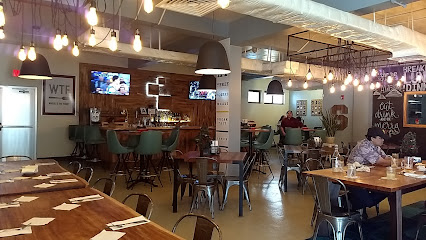
Horse & Cow
Discover delicious dishes and vibrant ambiance at Horse & Cow in Apotgan, Guam – a must-visit restaurant for food lovers.
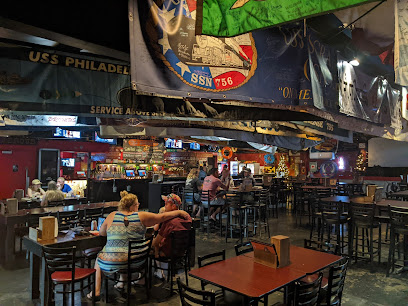
Olive Garden Italian Restaurant
Experience authentic Italian flavors at Olive Garden in Guam – a family-friendly restaurant serving pasta, seafood, and Mediterranean delights.
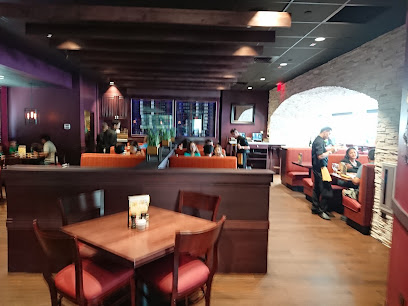
Buen Provecho Taco Shack
Experience the vibrant flavors of Mexico at Buen Provecho Taco Shack in Hågat, Guam - a taco lover's paradise!
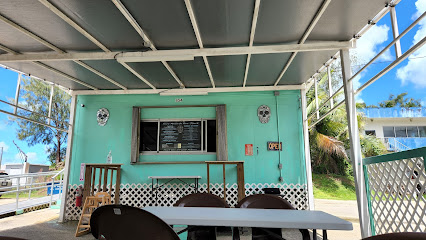
Crab Daddy Guam
Discover the vibrant flavors of Guam at Crab Daddy, where fresh seafood meets tropical charm in every delicious bite.
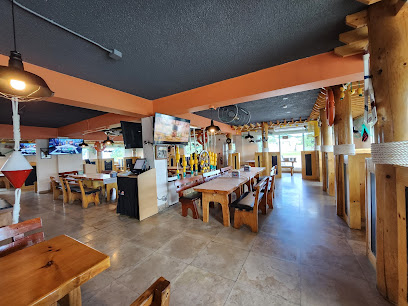
Fizz & Co.
Discover delicious local cuisine at Fizz & Co., an inviting diner in Hagåtña offering affordable meals with a taste of Guam's culinary heritage.
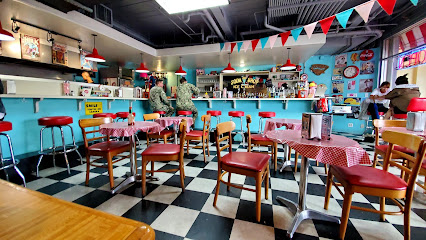
Wendy's Naval Base
Experience classic fast food at Wendy's Naval Base in Guam—delicious meals served in a friendly environment perfect for tourists and locals.
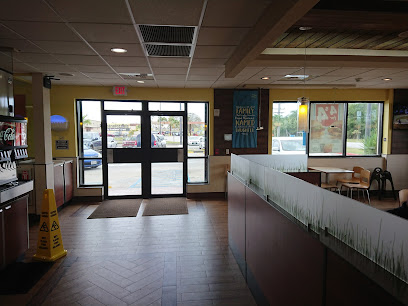
Taco Bell
Experience delicious fast food at Taco Bell in Guam with affordable prices and a menu full of Mexican-inspired favorites.
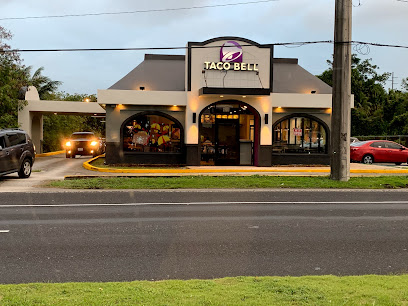
Khaohom Thai Restaurant
Savor the essence of Thailand at Khaohom Thai Restaurant in Apotgan, Guam - where authentic flavors meet warm hospitality.
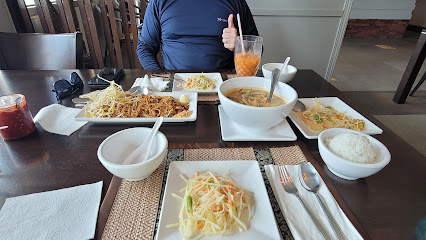
Markets, malls and hidden boutiques
Pay-Less Supermarkets
Explore Guam's local culinary delights at Pay-Less Supermarkets, where fresh produce meets island favorites in a vibrant shopping experience.

Shop 4 Less
Discover diverse shopping at Shop 4 Less in Guam, your go-to destination for crafts, essentials, and local treasures.

Navy Exchange Home
Discover unique home goods and military-themed souvenirs at the Navy Exchange Home in Apra Harbor, Guam, a shopper's paradise.

Agat Kim Chee Store
Discover local flavors at Agat Kim Chee Store, a vibrant supermarket in Hågat, Guam, offering fresh produce and unique local products.
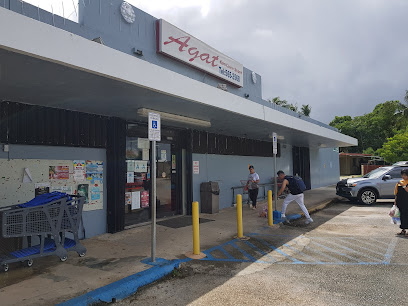
Puff Supply Guam - Agat
Explore the vibrant world of vaping at Puff Supply Guam, Agat's premier vaporizer store offering extensive selections and expert advice.

SM Island Guam
Discover the vibrant shopping experience at SM Island Guam, where local culture meets global brands in the heart of Hagåtña.

NEX Home Gallery
Explore the NEX Home Gallery in Apra Harbor for a diverse selection of home goods and unique souvenirs in a vibrant shopping atmosphere.

TonTon Corner Store
Explore TonTon Corner Store in Hågat, Guam - your go-to grocery store for local flavors, unique products, and exceptional service.
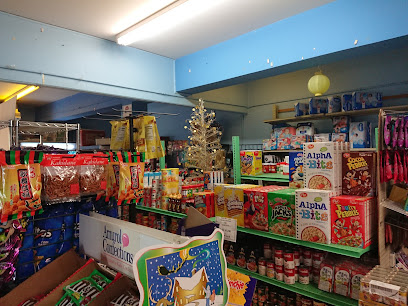
Old Spanish Bridge Store
Experience the local culture and flavors at Old Spanish Bridge Store in Hågat, Guam - a treasure trove for unique groceries and souvenirs.
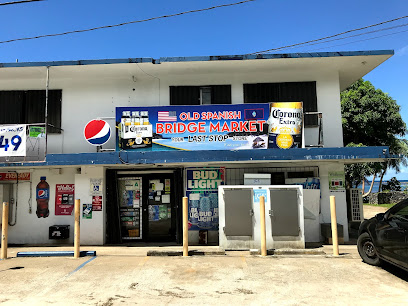
Santa Rita Store
Explore local culture and unique products at Santa Rita Store, a charming shopping destination in Guam that tourists love.

GIFT GUAM
Discover unique souvenirs and local crafts at GIFT GUAM in Tumon, the perfect destination for memorable keepsakes from your island adventure.
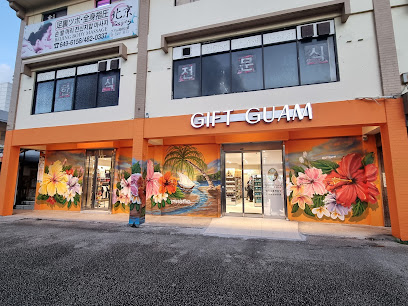
Smart Town
Explore Smart Town, the ultimate shopping destination in Guam for unique gifts, accessories, and school supplies.
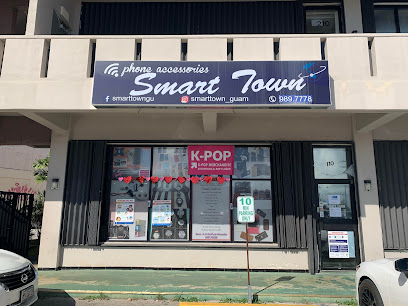
Hidden-Treasures-Thrift-Store-and-Boutique
Unearth unique fashion and accessories at Hidden Treasures Thrift Store and Boutique in Guam, a must-visit for savvy shoppers and treasure hunters!

Agat Village Mart
Explore the flavors of Guam at Agat Village Mart, your go-to supermarket for local and international products.
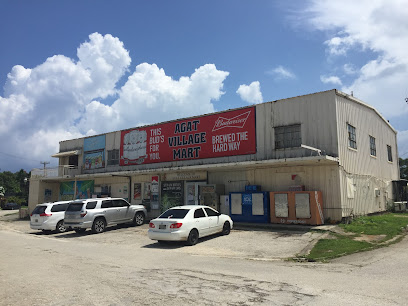
Kanada Store
Experience a vibrant grocery store in Mexico City, offering local flavors and international delicacies at Kanada Store.

Essential bars & hidden hideouts
Jeff's Pirates Cove
Discover the unique flavors and stunning ocean views at Jeff's Pirates Cove, a must-visit grill in Guam for an unforgettable dining experience.
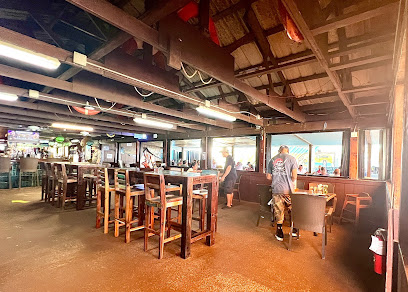
Jimmy Dee's Paradise Beach Resort & Bar
Discover the vibrant atmosphere of Jimmy Dee's Paradise Beach Resort & Bar, where tropical drinks and stunning ocean views await in Guam.
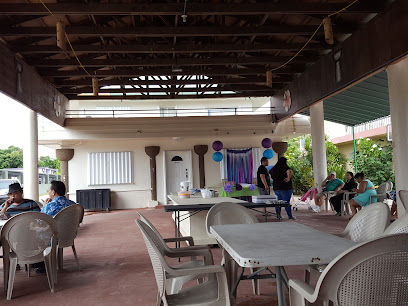
Green Lizzard Tiki Bar
Experience the vibrant atmosphere and exotic cocktails at Green Lizzard Tiki Bar, the perfect spot for nightlife in Guam.
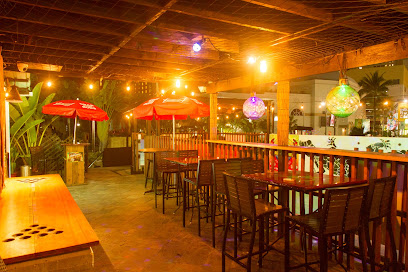
Bernie's Bar
Discover the lively ambiance and tropical flavors at Bernie's Bar, a perfect retreat in Apotgan, Guam, for tourists seeking nightlife excitement.
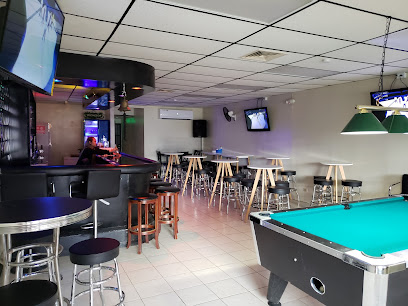
The Venue
Experience the vibrant nightlife at The Venue in Hagåtña, where delicious cocktails and a lively atmosphere await every visitor.
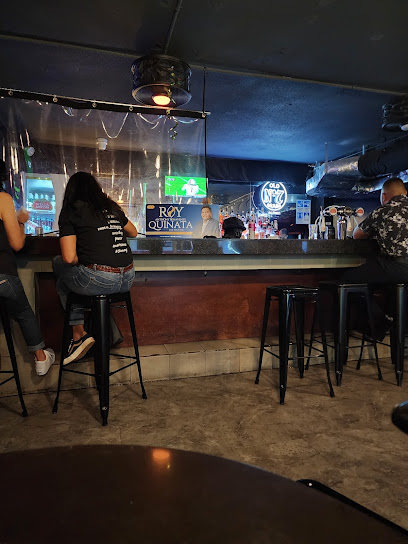
Old Traditions
Discover the vibrant nightlife of Guam at Old Traditions, a lively bar offering local flavors and a welcoming atmosphere in Tumon.
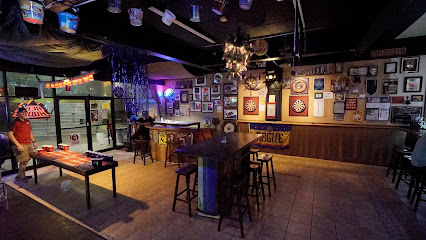
Bambu Bar
Experience the essence of island life at Bambu Bar, where tropical cocktails and vibrant ambiance meet in the heart of Tumon, Guam.
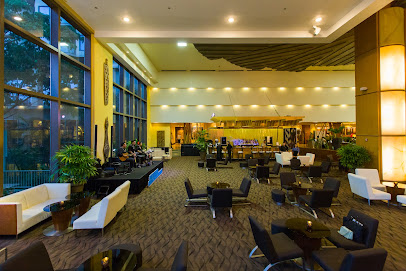
Skyline Resto-Pub
Experience the vibrant nightlife and stunning views at Skyline Resto-Pub, a must-visit bar in Apotgan, Guam.
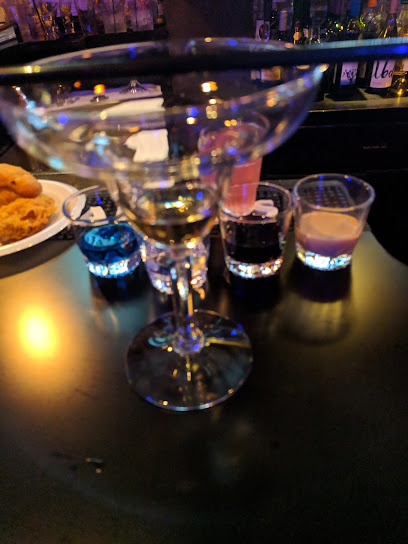
Misty's Beach Bar
Experience the tropical paradise at Misty's Beach Bar in Tumon, Guam, where food, drinks, and stunning ocean views await every visitor.
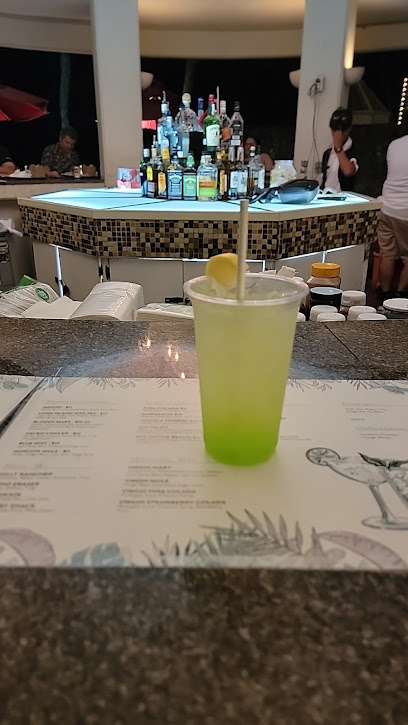
Infinity Bar
Discover the vibrant atmosphere and stunning ocean views at Infinity Bar, Tumon's premier spot for cocktails and nightlife.
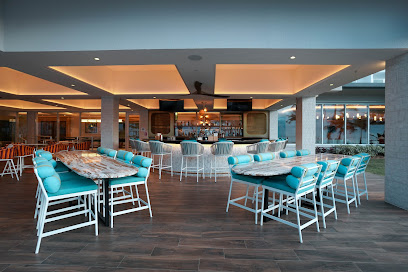
Belle's Bar
Experience the vibrant atmosphere at Belle's Bar in Guam, a local favorite for unique cocktails and a friendly ambiance.
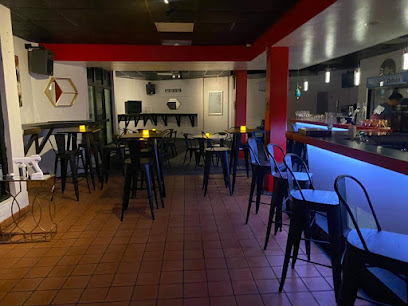
Cindy's Pub
Experience the vibrant nightlife of Hagåtña at Cindy's Pub, a local favorite bar offering great drinks and a welcoming atmosphere.
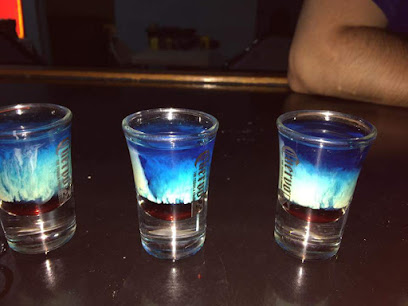
Player's Bar
Discover the vibrant nightlife of Guam at Player's Bar, where locals and tourists gather for great drinks and good times.
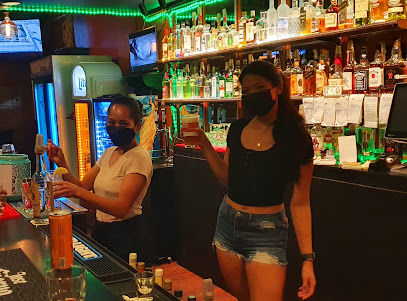
iCue Karaoke RestoLounge
Experience the vibrant nightlife at iCue Karaoke RestoLounge, where great cocktails meet unforgettable karaoke in Anigua, Guam.

Local Phrases
-
- HelloHåfa Adai
[HA-fa a-DYE] - GoodbyeHåfa Adai
[HA-fa a-DYE] - YesHåguaiya
[ha-GWAI-ya] - NoTaya
[TA-ya] - Please/You're welcomeKao magahet
[KOW ma-GA-het] - Thank youSi Yu'os Ma'åse
[see you-OS ma-AH-se] - Excuse me/SorryKao magahet
[KOW ma-GA-het] - How are you?Haånai maolek?
[ha-AN-eye ma-O-lek] - Fine. And you?Mahålang. Yan yu'?
[ma-HA-lang. yan yu] - Do you speak English?Ha'åni i mas ångok?
[HA-ani ee mas AN-gok] - I don't understandTi hu tungo
[tee hoo TUNG-goh]
- HelloHåfa Adai
-
- I'd like to see the menu, pleaseHa achok na' menu, kamlu
[ha a-CHOK na ma-NU kamlu] - I don't eat meatTi hu kåne'
[tee hoo KAN-eh] - Cheers!Biba!
[BEE-ba] - I would like to pay, pleaseHa lina' yu', kamlu
[ha LEE-na yu kamlu]
- I'd like to see the menu, pleaseHa achok na' menu, kamlu
-
- Help!Ayuda!
[ah-YOO-da] - Go away!Ufresi!
[oo-FRE-see] - Call the Police!Lågu i Polisia!
[LA-goo ee po-LEE-see-ya] - Call a doctor!Lågu i manma'åmama'!
[LA-goo ee man-ma-AH-ma] - I'm lostTi hu fahåran
[tee hoo fa-HA-ran] - I'm illTi hu manhaggan
[tee hoo man-HAG-gan]
- Help!Ayuda!
-
- I'd like to buy...Ha saina...
[ha SAI-na] - I'm just lookingTi hu fihu
[tee hoo FEE-hoo] - How much is it?Ilelek ina?
[ee-LE-lek EE-na] - That's too expensiveLeklek yan
[LEK-lek yan] - Can you lower the price?Ha tuge' i prisu?
[ha TOO-geh ee PREE-soo]
- I'd like to buy...Ha saina...
-
- What time is it?Kåo triståt na ora?
[KOW tree-STAHT na O-ra] - It's one o'clockEsta i ora humåtto
[ES-ta ee O-ra hoo-MA-to] - Half past (10)Kåo gi i 10
[KOW gee ee 10] - MorningMåsåna
[ma-SAH-na] - AfternoonTånon
[TAH-non] - EveningGåni
[GA-nee] - YesterdayKåo fumatåno'
[KOW foo-ma-TAH-no] - TodayKåo gi este
[KOW gee ES-te] - TomorrowKåo gi håfa
[KOW gee HA-fa] - 1Måsso
[MA-sso] - 2Gualo
[GWA-lo] - 3Tulu
[TOO-lo] - 4Få'gu
[FAH-goo] - 5Lima
[LEE-ma] - 6Gualua
[GWA-lua] - 7Månu
[MA-nu] - 8Fatman
[FAT-man] - 9Sånga
[SAH-nga] - 10Manhåyi
[man-HA-yee]
- What time is it?Kåo triståt na ora?
-
- Where's a/the...?Kao gi i...
[KOW gee ee] - What's the address?Kåo gi i dirision?
[KOW gee ee dee-ree-SYON] - Can you show me (on the map)?Ha muna'ån-muna'ån hita (gi i mapa)?
[ha moo-na-ah-moo-na-ahN HEE-ta gee ee MA-pa] - When's the next (bus)?Kåo ya-na'?
[KOW ya-NA] - A ticket (to ....)Un billete (para ...)
[oon bee-YET-te (PA-ra)]
- Where's a/the...?Kao gi i...
History of Santa Rita
-
Long before European explorers arrived, Santa Rita was part of the thriving Chamorro civilization. The Chamorro people developed a sophisticated society with unique cultural practices, including the construction of latte stones, which served as foundations for their homes. These stones remain a significant symbol of Chamorro heritage in Santa Rita.
-
In 1668, Spanish missionaries led by Father San Vitores arrived in Guam, marking the beginning of the Spanish colonial era. Santa Rita, like other parts of the island, experienced significant changes as Catholicism and Spanish customs were introduced. The village was originally named Pago until its relocation and renaming in the early 20th century.
-
During World War II, Santa Rita played a crucial role in the Battle of Guam. After the Japanese invasion in 1941, the island, including Santa Rita, was under occupation until the American forces liberated it in 1944. The village was heavily affected by the war, with many residents evacuated and homes destroyed during the conflict.
-
Following World War II, Santa Rita underwent significant reconstruction. The establishment of the U.S. Naval Base at Apra Harbor brought economic growth and modernization to the area. The village was relocated and renamed Santa Rita in honor of Saint Rita of Cascia, reflecting the strong Catholic influence in the community.
-
In recent decades, there has been a revival of Chamorro culture in Santa Rita. Efforts to preserve the Chamorro language, traditional crafts, and cultural practices are evident throughout the village. Santa Rita today is a vibrant community that honors its rich history while embracing modern development.
Santa Rita Essentials
-
Santa Rita is located on the southwestern coast of Guam. The nearest airport is Antonio B. Won Pat International Airport (GUM) in Tamuning, which is approximately a 30-minute drive from Santa Rita. From the airport, you can rent a car, take a taxi, or use airport shuttles to get to Santa Rita. Some hotels also offer transfer services for their guests.
-
Santa Rita is a small village with limited public transportation options. Renting a car is the most convenient way to explore the area and the rest of Guam. Taxis are available but can be expensive for longer distances. For shorter trips within the village, walking or biking is feasible. Public buses do service the area, but they can be infrequent and may not cover all tourist spots.
-
The official currency in Guam is the US Dollar (USD). Credit cards are widely accepted in hotels, restaurants, and larger stores. However, it is advisable to carry some cash for use in smaller shops and local markets. ATMs are available in Santa Rita, but it's wise to withdraw sufficient cash in more populated areas like Tamuning or Hagåtña to ensure you have enough funds.
-
Santa Rita is generally a safe destination for tourists. However, like any travel destination, it's advisable to take standard precautions. Avoid walking alone at night in unfamiliar areas and keep an eye on your belongings in crowded places. While Santa Rita does not have specific high-crime areas targeting tourists, it is always best to stay vigilant and aware of your surroundings.
-
In case of emergency, dial 911 for immediate assistance. Santa Rita has a local police station and medical facilities. It is recommended to have travel insurance that covers medical emergencies. For minor health issues, there are pharmacies in the village where you can purchase over-the-counter medications. The nearest hospital is Guam Memorial Hospital in Tamuning.
-
Fashion: Do dress modestly, especially when visiting religious sites. Avoid wearing overly revealing clothing. Religion: Do respect local customs and traditions. Always dress appropriately when visiting churches and other religious sites. Public Transport: Do be respectful and give up your seat to elderly passengers. Don't eat or drink on public transport. Greetings: Do greet people with a handshake or a simple 'Hafa Adai' (hello). It's a sign of respect and friendliness. Eating & Drinking: Do try local delicacies and accept food offerings graciously. Don't refuse hospitality, as it is considered impolite.
-
To experience Santa Rita like a local, visit the local markets where you can buy fresh produce and traditional Chamorro goods. Engage with locals, as they are often friendly and willing to share stories about the village's history and culture. Don't miss visiting the Fort Nuestra Señora de la Soledad, which offers stunning views of Umatac Bay. For a unique experience, participate in local festivals and events, where you can enjoy traditional music, dance, and cuisine.
Trending Landmark in Santa Rita
-
Two Lover’s Point
-
Inarajan Natural Pool
-
Fish Eye Marine Park - Visitor Center
-
Ypao Beach
-
Plaza de España
-
Fort Nuestra Señora de la Soledad
-
Cetti Bay Overlook
-
Ritidian Point
-
Talo'fo'fo' Falls
-
T. Stell Newman Visitor Center
-
Fort Santa Agueda
-
Fish Eye Underwater Observatory
-
Asan Bay Overlook
-
Merizo Pier
-
War in the Pacific National Historical Park
Nearby Cities to Santa Rita
-
Things To Do in Agat
-
Things To Do in Agana Heights
-
Things To Do in Sinajana
-
Things To Do in Hagåtña
-
Things To Do in Tumon
-
Things To Do in Tamuning
-
Things To Do in Mangilao
-
Things To Do in Dededo
-
Things To Do in Yigo
-
Things To Do in Koblerville
-
Things To Do in Saipan
-
Things To Do in Kagman
-
Things To Do in Garapan
-
Things To Do in Capital Hill
-
Things To Do in San Roque








